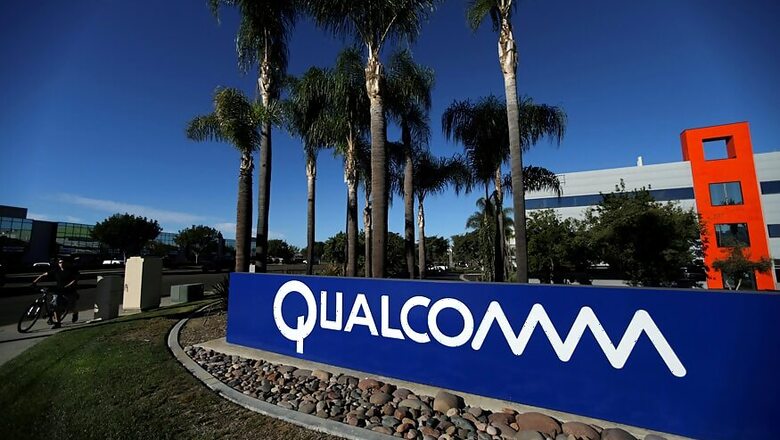
views
Chip supplier Qualcomm Inc won a second court skirmish in its worldwide patent battle with Apple Inc, with the iPhone maker saying it would pull some older models from its German stores. Qualcomm’s win in Germany comes weeks after it secured a court order to ban sales of some iPhone models in China. Apple, which is contesting both rulings, has continued to offer its iPhones in China but made changes to its iOS operating system in the wake of the Chinese order.
The German victory may affect only a few million iPhones out of the hundreds of millions that Apple sells each year. Still, it is a small but clear win in a complex legal battle that will spin into overdrive in the coming months as antitrust regulators and Apple both take Qualcomm to court in the United States.
Apple alleges that Qualcomm engaged in illegal behavior to preserve a monopoly on modem chips, which help mobile devices connect to wireless data networks. Qualcomm has in turn accused Apple of using the chip supplier’s vast stable of technology innovations without proper compensation.
While a sales ban in China could hurt Apple’s bottom line, it is unlikely the two patent skirmishes will sway the outcome of the broader battle, where Qualcomm has suffered a series of setbacks fighting U.S. antitrust regulators.
Shares of Apple were down 2.3 percent at $157.12 in late trading, weighing on the broader market. Qualcomm shares were down 0.2 percent at $56.69.
Qualcomm is not pursuing the software patents in the Chinese case in other jurisdictions and suffered an early loss while pursuing a U.S. sales ban on the U.S. version of the hardware patent at issue in Germany. On Thursday, Apple said it would pull older iPhones from its German stores after a court ruled that Apple had infringed a hardware patent of Qualcomm Inc and banned sales of iPhones there with chips from Apple supplier Qorvo Inc.
“Two respected courts in two different jurisdictions just in the past two weeks have now confirmed the value of Qualcomm’s patents and declared Apple an infringer, ordering a ban on iPhones in the important markets of Germany and China,” Don Rosenberg, Qualcomm’s general counsel, said in a statement.
For each of the two Apple entities it won orders against, Qualcomm needs to post a bond of about 668.4 million euros, or $765.9 million, before it can begin proceedings to enforce the order, a move Qualcomm said it would carry out “within a few days.”
The smartphone maker said it was appealing the decision, but the order goes into effect as soon as Qualcomm posts the bond. Apple said it would pull some phones from its stores while it pursued an appeal. “We are of course disappointed by this verdict and we plan to appeal,” Apple said in a statement. “All iPhone models remain available to customers through carriers and resellers in 4,300 locations across Germany. During the appeal process, iPhone 7 and iPhone 8 models will not be available at Apple’s 15 retail stores in Germany. iPhone XS, iPhone XS Max and iPhone XR will remain available in all our stores.”
Stacy Rasgon, an analyst with research firm Bernstein, said in a note that Germnany was a small iPhone market for Apple, selling about 10 million units a year, with possibly only half of those being the older models affected by the court’s order. When Qualcomm posts the bond to enforce the order, it could seek to extend the ban to Apple’s resellers and the newer iPhone models not included thus far, legal experts said.
Qualcomm said the court had granted its request for “a recall and destruction of all accused devices from all retailers in Germany.”




















Comments
0 comment